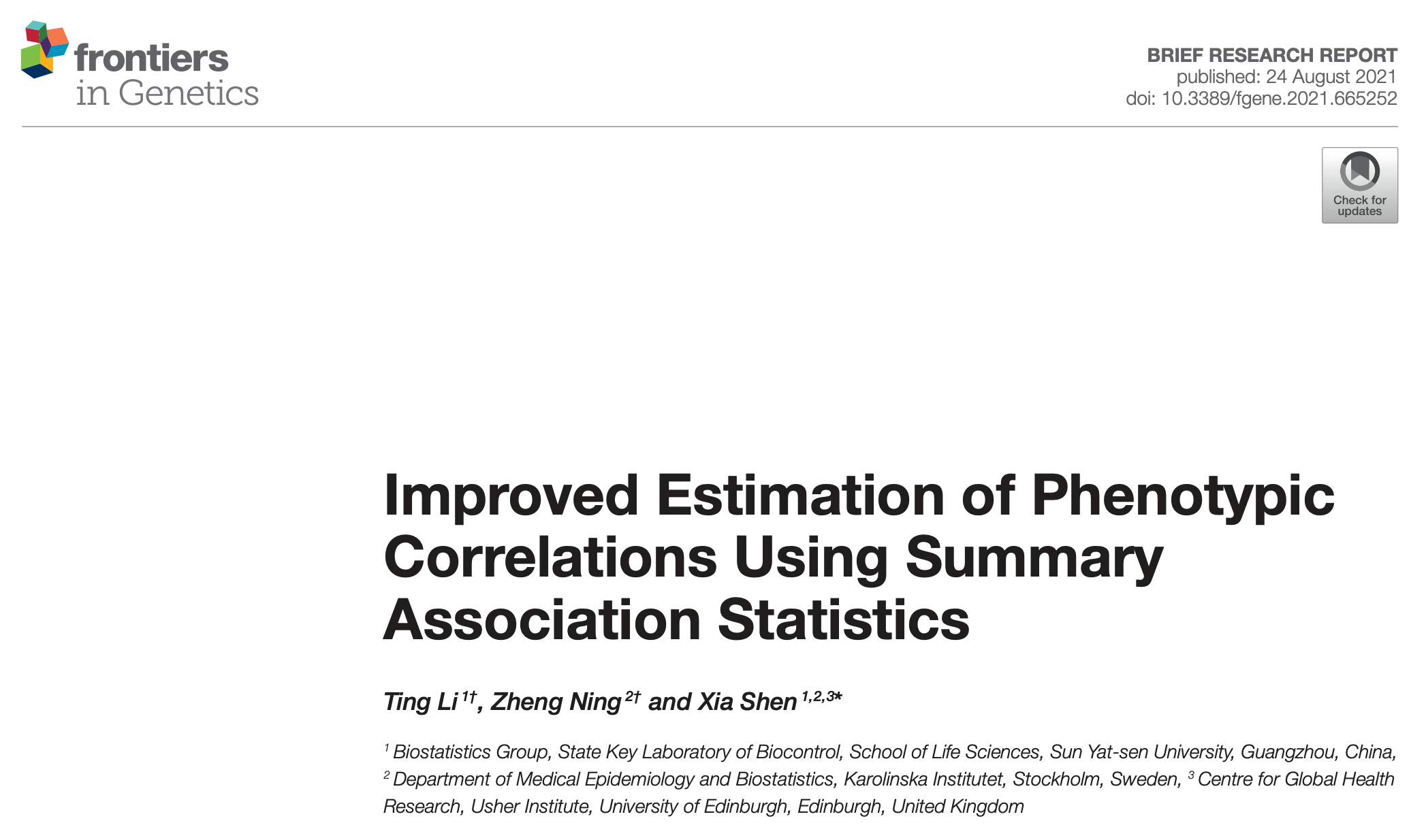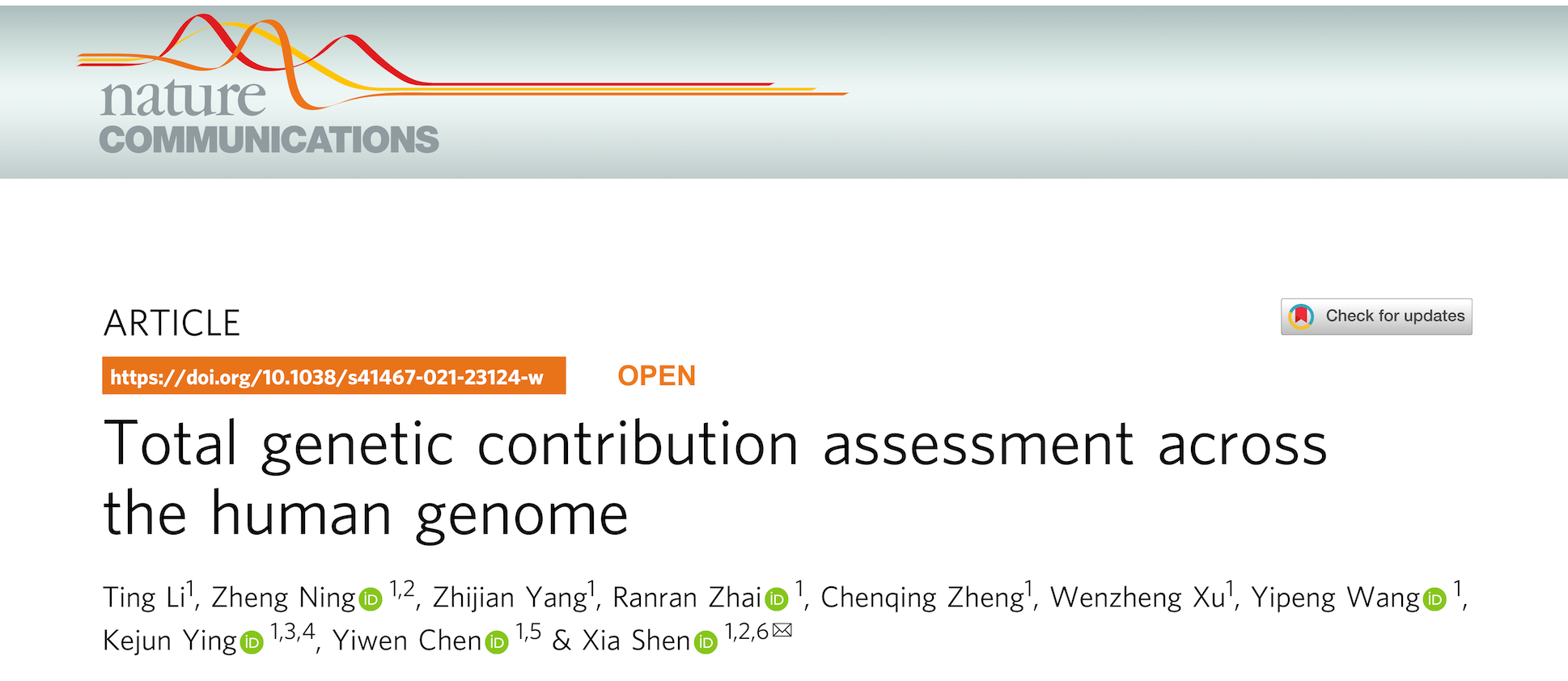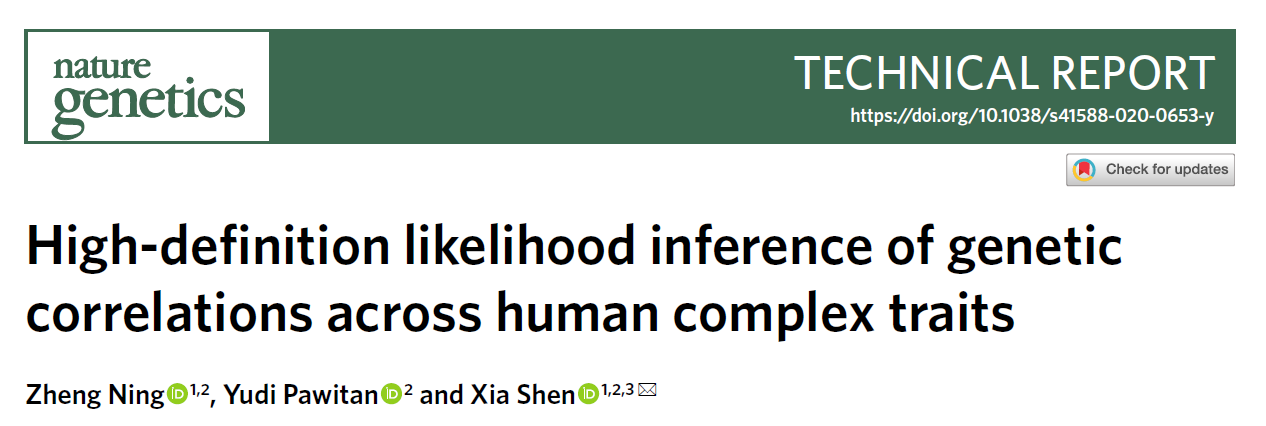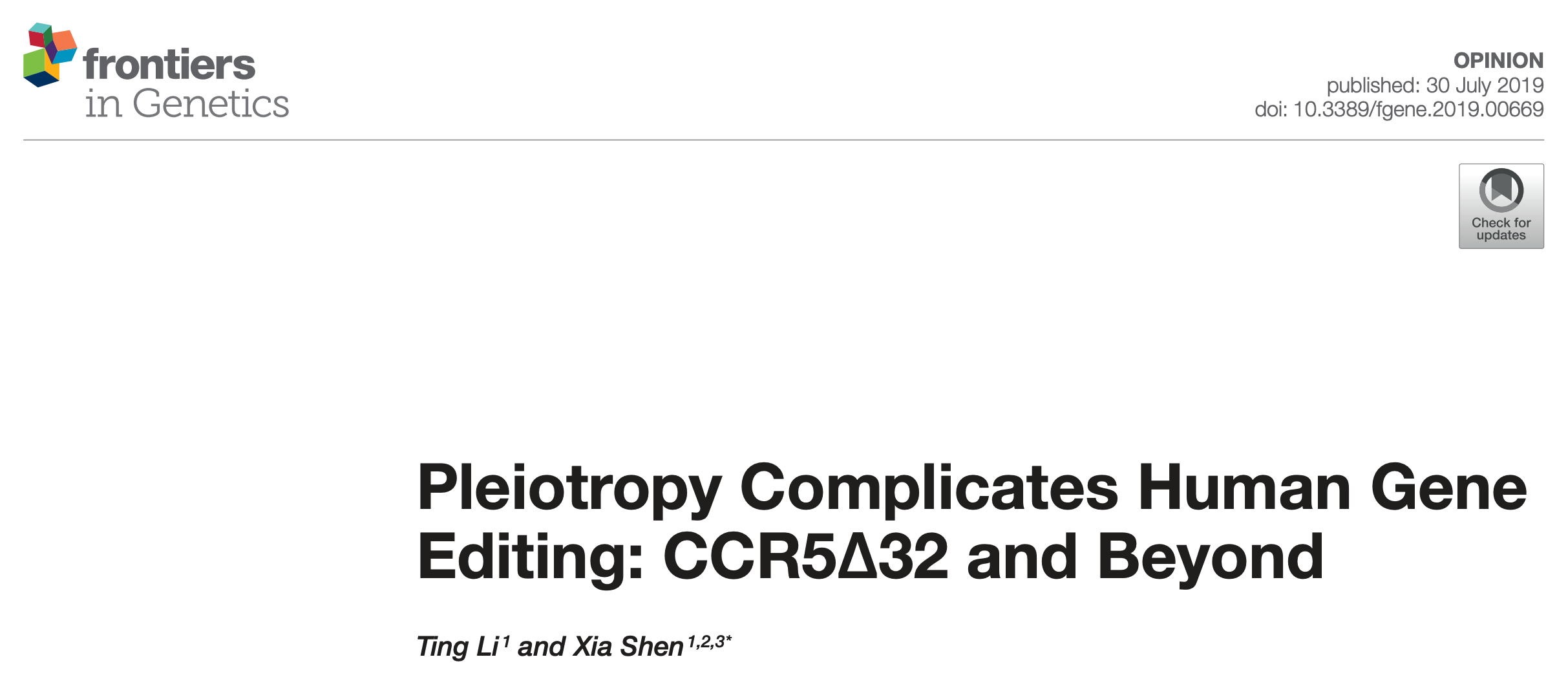Statistical Genetics – Quantitative Genetics – Genetics of Complex Traits –
Computational Biology – Biostatistics – Bioinformatics
News
(24-Aug-2021) Publication in Frontiers in Genetics

Our paper on a simple improved strategy for estimating phenotypic correlations using GWAS summary statistics is now published in Frontiers in Genetics! In order to obtain a good estimate for phenotypic correlations using GWAS results, one simply needs to find a number of SNPs with low MAFs (e.g., < 0.05 or even better < 0.005). Then the correlation coefficient between the two vectors of test statistics for two traits would be a highly efficient estimator of the phenotypic correlation, subject to a shrinkage factor if the two GWAS samples partially overlap.
(14-May-2021) Publication in Nature Communications

Our TGCA method paper on quantifying total genetic effects and pleiotropy is now published in Nature Communications! It provides a unified threshold-free method to assess the total genetic contribution of each SNP in the genome on a group of complex traits. We identify the most influential loci for different trait domains in the UK Biobank. See also press release in Chinese by BioArt.
(29-Jun-2020) Publication in Nature Genetics

Our HDL method paper on genetic correlation estimation is now published in Nature Genetics! It provides more power for analyzing GWAS summary statistics. HDL is based on a full likelihood of genetic effects, and the additional information helps improve estimation efficiency compared to LD score regression (LDSC). In practice, the estimation will be more accurate, and the standard error will be smaller, as if 2.5 x N using LDSC. See also press release in Chinese by BioArt.
(31-Jul-2019) Publication in Frontiers in Genetics

Our opinioin paper on the pleiotropic effects of CCR5Δ32 is published in Frontiers in Genetics. We investigated the potential side effects due to genetic pleiotropy of He Jiankui’s CRISPR editing target. The 32bp deletion, though protective against HIV-1 infection, simultaneously carries substantial harmful effects across various human complex diseases. We approached this by looking into GWAS summary statistics in the UK Biobank and mixture modeling of the genetic effects. See also press release in Chinese by The Intellectural & Sina.